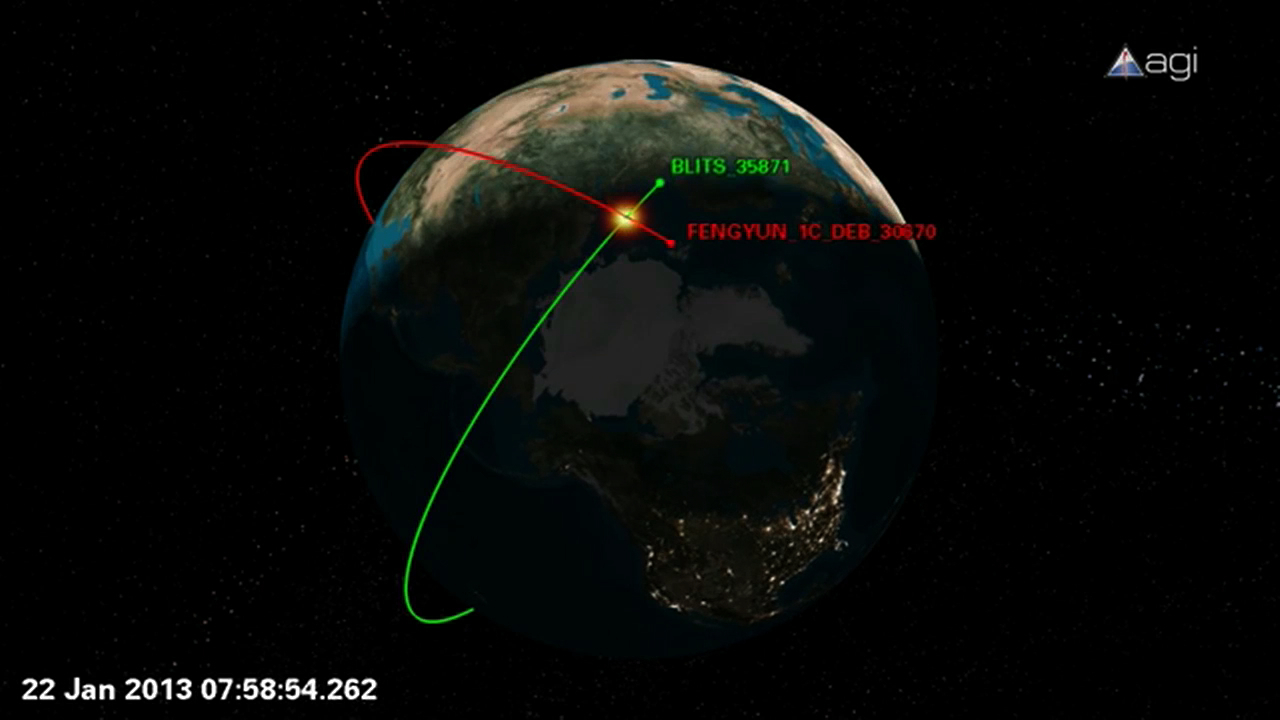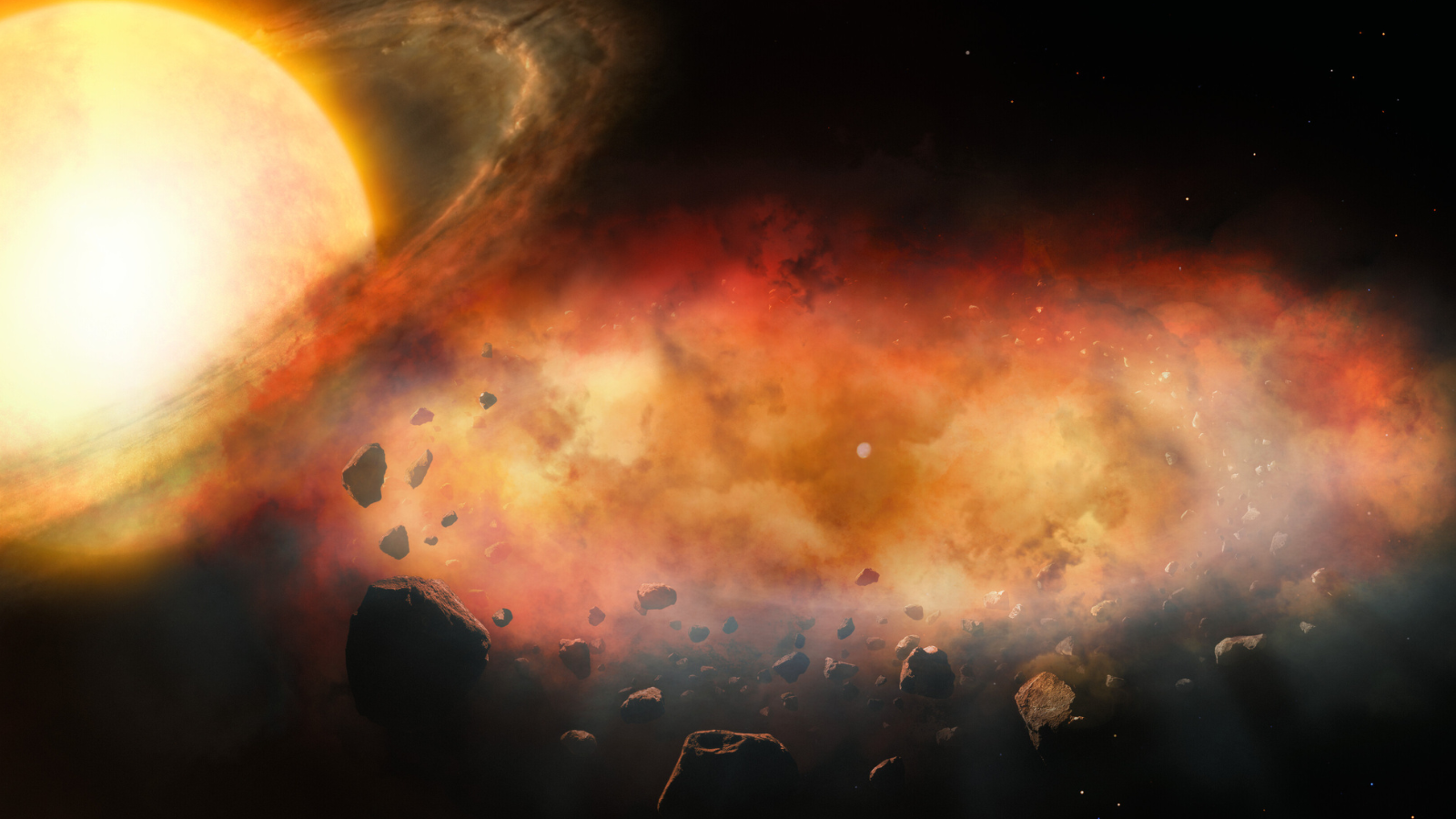US military to keep wary eye on Chinese and Russian space ambitions under President Biden

The space ambitions of Russia and China will likely stay front and center for the U.S. military during the administration of President Joe Biden, experts say.
During the presidency of Biden's predecessor, Donald Trump, U.S. officials repeatedly stressed that Russia and China pose a substantial and growing threat to the United States' long-held space dominance. In 2019, for example, then-Vice President Mike Pence said that the U.S. is in a space race with those two adversaries, "and the stakes are even higher" today than they were during the 1960s Cold War space race with the Soviet Union.
Biden has already pivoted away from a number of Trump policies. But the new president will probably keep a wary eye on Russia and China in the space domain, if the words of his defense secretary, Lloyd Austin, are any guide.
Related: The most dangerous space weapons ever
In written testimony submitted to the Senate Armed Services Committee ahead of his confirmation hearing in January, Austin noted that space is "already an arena of great power competition" and identified China and Russia as the United States' two main rivals in this sphere, as they are in other domains.
"Chinese and Russian space activities present serious and growing threats to U.S. national security interests," Austin wrote, identifying Russia as a "key adversary" but singling out China as "the pacing threat."
"Chinese and Russian military doctrines also indicate that they view space as critical to modern warfare and consider the use of counterspace capabilities as both a means of reducing U.S. military effectiveness and for winning future wars," he added. "Addressing these challenges in the space domain is central to 'great power competition' more generally."
Breaking space news, the latest updates on rocket launches, skywatching events and more!
Those "counterspace capabilities" include anti-satellite (ASAT) technologies, which both Russia and China have been developing and testing. China famously destroyed one of its own defunct satellites during a January 2007 ASAT test, for example, generating a huge new swarm of orbital debris.
In May 2013, China conducted a less destructive test of a different ASAT system, which really caught the attention of officials in the administration of President Barack Obama. It apparently prompted the initiation of a National Intelligence Estimate about the ASAT threat, which in turn kicked off a Department of Defense "Space Strategic Portfolio Review" in May 2014, said Brian Weeden, director of program planning for the Secure World Foundation, a nonprofit organization dedicated to space sustainability.
The goal of the review "was to assess whether the department's investments aligned with policy and goals in light of the changing threat environment," Weeden told Space.com.
Shortly thereafter, Gen. John Hyten, then the head of Air Force Space Command, began stressing publicly that the United States couldn't take its space superiority for granted. In April 2015, for instance, Hyten appeared on a "60 Minutes" segment called "The Battle Above," which discussed ASAT technology and other components of the escalating competition in the final frontier.
"It’s a competition that I wish wasn’t occurring, but it is," Hyten said on the show. "And if we’re threatened in space, we have the right of self-defense, and we’ll make sure we can execute that right."
So, concerns about Russian and Chinese space activities didn't originate with the Trump administration, and neither did the airing of such concerns. The U.S. defense and intelligence communities have been focused on such activities for a while now, and there's no reason to expect a big shift under Biden, Weeden said.
But that doesn't mean there won't be some changes around the margins.
"I hope there is even more of a public discussion of these issues, because they affect a lot more than just the military. A future conflict in space affects pretty much everybody who's going to use space," Weeden said.
"And I also hope there's more of a public discussion about what our response should be, and what the options are," he said. "That really hasn't existed. The Trump administration ramped up the rhetoric and the public discussion of the threats, but did not have a good public debate about what we do about it."
The U.S. Space Force could be part of the solution, Weeden said, noting that U.S. officials invoked the Chinese and Russian space threat as a key justification for the creation of the nation's newest military branch. But that fix will not be an immediate one, if it does indeed come; it'll likely take five to 10 years for the Space Force to upgrade the nation's space defenses in a meaningful way, Weeden said.
Mike Wall is the author of "Out There" (Grand Central Publishing, 2018; illustrated by Karl Tate), a book about the search for alien life. Follow him on Twitter @michaeldwall. Follow us on Twitter @Spacedotcom or Facebook.

Michael Wall is a Senior Space Writer with Space.com and joined the team in 2010. He primarily covers exoplanets, spaceflight and military space, but has been known to dabble in the space art beat. His book about the search for alien life, "Out There," was published on Nov. 13, 2018. Before becoming a science writer, Michael worked as a herpetologist and wildlife biologist. He has a Ph.D. in evolutionary biology from the University of Sydney, Australia, a bachelor's degree from the University of Arizona, and a graduate certificate in science writing from the University of California, Santa Cruz. To find out what his latest project is, you can follow Michael on Twitter.
